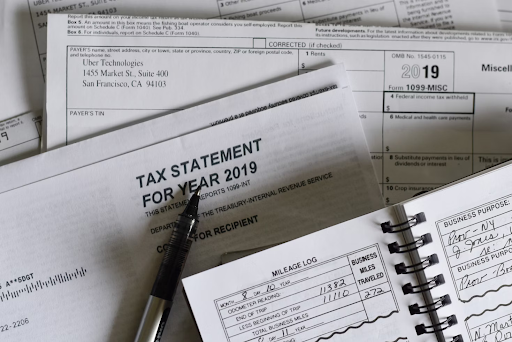The late nights spent hunched over a spreadsheet, the shoebox of faded receipts, the gnawing anxiety about an upcoming tax deadline—these are the tell-tale signs of financial chaos. For many business owners, this is a familiar and stressful reality. You’re an expert in your field, but you feel like you’re flying blind when it comes to the numbers that drive your business. This uncertainty leads to lost time, missed growth opportunities, and a constant state of cash flow anxiety.
The solution isn’t just better organization; it’s a fundamental shift in perspective. You need to move from reactive record-keeping to proactive, forward-looking financial management. As the Journal of Accountancy points out, having a strong strategic plan “helps firms keep pace with the ever-increasing speed of change in the marketplace.” That same principle applies to your financials—strategic accounting turns static data into a living roadmap for success, helping you make confident, data-driven decisions that fuel sustainable growth.
Many business owners in Orlando find that partnering with an expert is the fastest way to gain clarity, reclaim their time, and focus on what they do best.
Key Takeaways
- Strategic accounting transforms financial data from a historical record into a powerful tool for informed business decisions and growth.
- Implementing core pillars like proactive budgeting, disciplined cash flow management, and strategic tax planning is essential for financial stability.
- Leveraging modern accounting software and focusing on key performance indicators (KPIs) empowers you to make data-driven choices.
- Knowing when to outsource accounting to professionals can free up your time, reduce stress, and provide expert guidance for sustained business expansion.
The Strategic Shift: Beyond Bookkeeping to True Financial Insight
To achieve financial clarity, you must first understand the crucial difference between the tasks you might be doing now and the strategy you need to adopt for the future. Many business owners think accounting is just bookkeeping, but that’s only half the story.
What’s the Difference Between Bookkeeping and Strategic Accounting?
Bookkeeping is the foundational process of recording your daily financial transactions. It’s about accuracy, organization, and compliance. Think of it as looking in the rearview mirror; it tells you exactly where you’ve been, which is essential for knowing your starting point.
Strategic Accounting, on the other hand, is the process of analyzing and interpreting that data to plan for the future. It answers the critical questions: “So what?” and “What’s next?” It’s your business’s GPS, using your current location (your bookkeeping data) to map out the best route to your destination.
Working with a trusted provider of accounting solutions allows businesses to turn financial data into a clear roadmap for growth. From tax compliance and bookkeeping accuracy to cash flow forecasting and strategic planning, expert accountants help decision-makers stay informed and financially confident.
| Feature | Bookkeeping | Strategic Accounting |
|---|---|---|
| Focus | Past/Present transactions | Future planning & growth |
| Goal | Record-keeping, compliance | Decision-making, profitability |
| Output | Raw data, basic statements | Actionable insights, forecasts |
| Role | Data entry, organization | Analysis, advisory, strategy |
The 5 Pillars of a Strategic Accounting System
Pillar 1: Proactive Budgeting & Financial Planning
Many business owners see a budget as a restrictive tool that limits spending. A strategic budget is the opposite—it’s a financial plan that empowers you to achieve your goals by allocating resources effectively. It’s your roadmap for the year, aligning your spending with your top priorities.
A good budget isn’t a “set it and forget it” document. It should be a living tool that you review and adjust monthly or quarterly to reflect changing market conditions and business objectives. Creating an annual budget and multi-year forecast is essential for aligning financial management with your long-term business strategy.
Pillar 2: Disciplined Cash Flow Management & Forecasting
Profit on paper means nothing if you don’t have cash in the bank to pay your bills, your team, and yourself. Cash flow is the lifeblood of your business, and managing it effectively is non-negotiable for survival and growth.
Disciplined cash flow management involves actively monitoring the money moving in and out of your business. Key techniques include shortening your accounts receivable cycle (getting paid faster), negotiating better payment terms with suppliers, and carefully managing your accounts payable. Beyond day-to-day management, cash flow forecasting allows you to anticipate future shortfalls or surpluses, giving you time to secure a line of credit or plan for a strategic investment.
Pillar 3: Rigorous Cost Control & Expense Management
Profitability isn’t just about increasing revenue; it’s also about controlling costs. Understanding your expenses is the first step toward optimizing them. Start by separating your costs into two categories: fixed (rent, salaries, software subscriptions) and variable (materials, shipping, sales commissions). This helps you understand your break-even point and the direct impact of sales on your bottom line.
Rigorous cost control doesn’t mean cutting corners or sacrificing quality. It means strategically reviewing every expense to ensure it provides a clear return on investment. Are you paying for software you no longer use? Could you negotiate a better rate with a long-term supplier? This discipline ensures your money is working as hard as you are.
Pillar 4: Strategic Tax Planning (Not Just Preparation)
For most business owners, “tax time” is a stressful scramble to gather documents and meet a deadline. This is tax preparation. Strategic tax planning is a year-round activity focused on legally minimizing your tax liability.
A strategic approach involves understanding how business decisions made in May will impact your tax bill the following April. It’s about leveraging every available deduction and credit, structuring your business for optimal tax efficiency, and staying ahead of new legislation. Proactive tax planning, often with the guidance of an expert, can save your business thousands of dollars and prevent costly surprises.
Pillar 5: Actionable Financial Reporting & Metrics
Financial reports are more than just compliance documents for the bank or the IRS. They are powerful tools for understanding the health and performance of your business. The “big three” reports provide a comprehensive picture:
- Profit & Loss (P&L) Statement: Shows your revenues, costs, and profitability over a specific period. It answers the question, “Is my business making money?”
- Balance Sheet: Provides a snapshot of your assets, liabilities, and equity at a single point in time. It answers, “What is the overall financial health of my company?”
- Cash Flow Statement: Tracks the movement of cash from operating, investing, and financing activities. It answers, “Where is my cash coming from, and where is it going?”
These reports are only valuable when they are accurate, timely, and used to inform your decisions.
Turning Data into Decisions: Your Financial Dashboard
From Reports to Results: How to Use Your Numbers
Having accurate reports is the first step. The next, more important step is learning how to use them. A strategic accounting system transforms raw data into actionable insights, giving you the confidence to make growth-oriented decisions.
The Technology That Powers Clarity
Manually tracking transactions in a spreadsheet is time-consuming and prone to error. Modern accounting software like QuickBooks or Xero automates much of the bookkeeping process, from categorizing transactions to generating financial reports in real-time. This automation frees up your time and gives you instant access to the data you need to run your business.
This move toward technology is no longer optional; it’s the standard. A recent report found that 64.4% of small business owners use accounting software, empowering them with the instant insights needed for strategic decisions.
The Evolving Role of the Modern Accountant
The accounting profession has changed significantly. An observed industry shift shows that today’s best accountants are more than just tax preparers or number-crunchers. They act as strategic advisors and virtual CFOs, offering proactive guidance on everything from cash flow management and profitability analysis to long-term growth strategy.
This partnership provides more than just accurate books; it offers peace of mind and expert financial leadership. It frees you up to focus on your vision, confident that the financial engine of your business is in expert hands.








